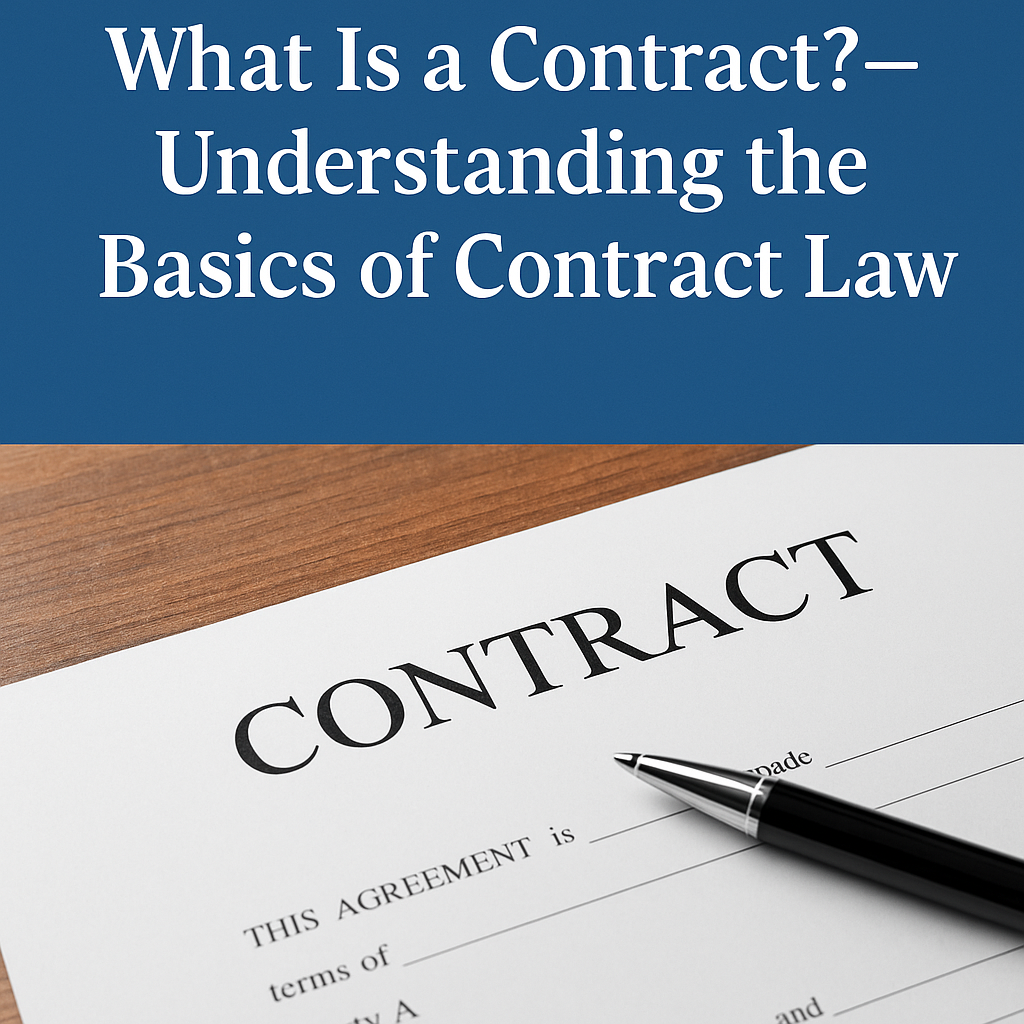
A contract is a foundational concept in the legal world, central to both personal and business relationships. At its core, a contract is a legally enforceable agreement between two or more parties that creates obligations and rights. Contracts ensure that promises made in a business or private setting are upheld under the law.
Key Elements of a Valid Contract:
1. Offer – One party makes a clear and definite proposal.
2. Acceptance – The other party accepts the offer without conditions.
3. Consideration – Each party must provide something of value (money, service, goods, etc.).
4. Intention to Create Legal Relations – The parties must intend that the agreement will be legally binding.
5. Capacity – Parties must be legally capable of entering into a contract (e.g., of sound mind and legal age).
6. Legality – The contract must not involve illegal activities.
Types of Contracts:
Contracts can be oral or written, though written contracts provide better evidence in legal disputes. Common types include:
• Employment contracts
• Service agreements
• Sales contracts
• Leases and rental agreements
• Non-disclosure agreements (NDAs)
Breach of Contract and Remedies:
When a party fails to fulfill their obligations, it is considered a breach of contract. The other party may be entitled to remedies, such as:
• Monetary damages – Compensation for losses.
• Specific performance – A court order requiring the breaching party to perform their duties.
• Rescission – Cancellation of the contract.
• Restitution – Returning any benefit received under the contract.
Understanding the basics of contract law is essential for anyone engaging in transactions, agreements, or business dealings. It provides a layer of legal protection and clarity that helps prevent misunderstandings and disputes.

Mr. Amirhasan shafiee



